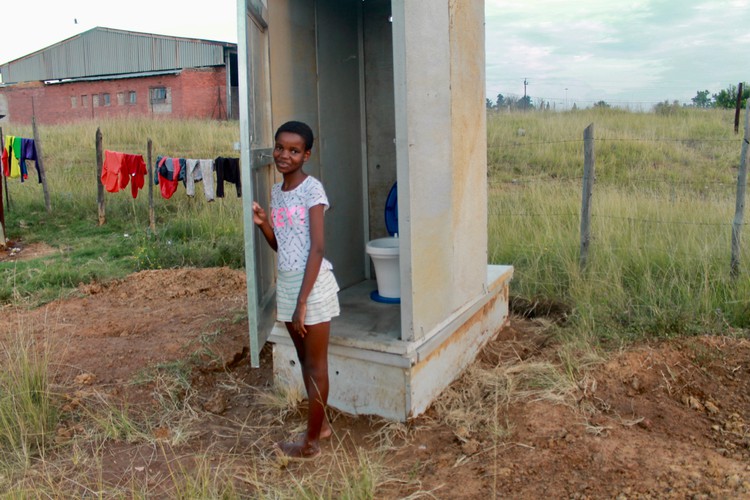Manzana toilets finally finished
The project began in October 2018
After months of waiting, the last households in Manzana village, Newcastle, northern KwaZulu-Natal, have received toilets.
The last five toilets to be built brings relief to villagers who have long lived in fear for the safety of their young children, who have had to use uncovered pit latrines.
Sibongile Mthethwa, 60, said, ‘“I had been losing hope that these toilets would be completed, because I have seen a number of projects being left incomplete in our Newcastle area in the past. But now I’m relieved that the toilets have finally been erected and completed.’’
Ward 8 councillor Vukile Kubheka, who had promised that the project would be completed before March, said, “As I had explained before, the contractor had halted the work because of a shortage of materials. But what is important now is that the project has been completed and the target number of toilets to be built has been reached.”
Initially, a project to build latrines got underway in the village in October last year and provided for 35 households. But towards the end of January, 15 toilets were still incomplete.
At the end of January, GroundUp reported on residents’ fears after holes were dug for toilets by contract workers, but left uncovered. A week later, the contractor resumed the work, though progress was slow.
GroundUp then reported at the end of March that only 10 of the 15 toilets were finished. The rest have now been completed.
Resident Zanele Xaba told GroundUp that in February the ward councillor had, at a meeting, asked why residents had gone to the media.
Next: Dunoon sport centre comes alive after four-year legal dispute
Previous: Lonmin case shows how hard it is to hold mines to account
© 2019 GroundUp.
This article is licensed under a Creative Commons Attribution-NoDerivatives 4.0 International License.
You may republish this article, so long as you credit the authors and GroundUp, and do not change the text. Please include a link back to the original article.



